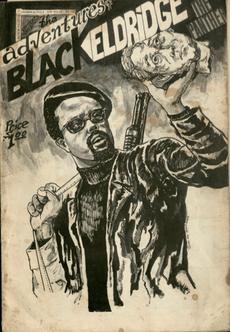|
Originally posted at The Hooded Utilitarian. I have been thinking about access in comics studies lately, about the way the availability of resources can be used to steer critical interests in the field. Publishing houses and archivists, collectors and copyright holders, even cultural guardians – there are a lot of people and institutions involved in making decisions about which titles to seek out, preserve, and keep in print. Of course, anyone who works among the ephemera of popular culture faces similar challenges, but my question focuses on the implications for comics scholarship: How does access to materials shape the choices you make about the comics you study, teach, or review?
Last week, I visited the comic book archives at the Library of Congress in DC and at Virginia Commonwealth University’s James Branch Cabell Library in Richmond. Although I arrived with a list of rare comics and fanzines that I wanted to read, the best part of spending time in archives was getting the chance to talk with the reference librarians who maintain the collections and know where to look for hidden gems. Thanks to Cindy Jackson at VCU, I got to turn the pages of The Adventures of Black Eldridge: The Panther, a newly-acquired underground comic produced by Ovid P. Adams in 1970. Megan Halsband at the Library of Congress introduced me to Joel Christian Gill’s recent series of Strange Fruit Comics that uses satire and comics culture to dramatize obscure black historical figures (along with great bonus features like “Lil’ Nino Brown in Slumland”). |
AboutAn archive of my online writing on comics, literature, and culture. (Illustration above by Seth!) Categories
All
Archives
July 2020
|


 RSS Feed
RSS Feed